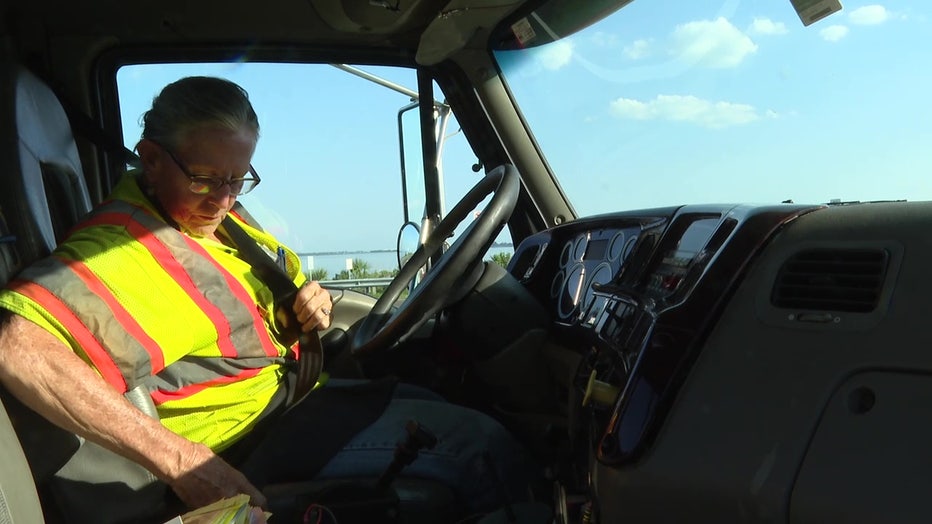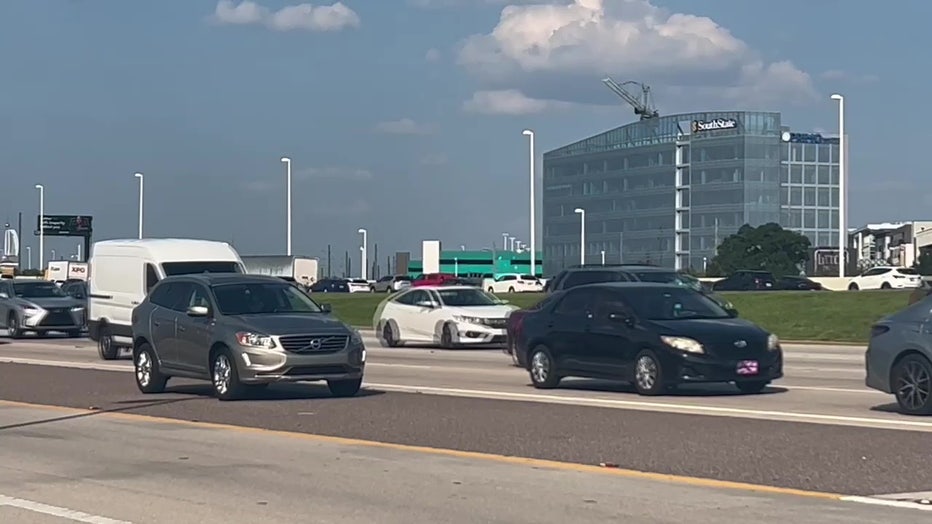Gov. DeSantis signs bill expanding 'move over' laws
TAMPA, Fla. - We've all seen the signs to move over for law enforcement and emergency vehicles.
Still, crashes happen. Now, lawmakers with full support from AAA are expanding that law, but despite the change some say enforcement of the current law is still lacking.
Ginger Darling has been a tow truck driver for more than 40 years. She spends most of her day on the road, so she has seen everything including drivers who don't move over.

Ginger Darling wants drivers to be more safe on the road and follow the "move over" laws.
"Predominately they're not. You do see a few, but it's nowhere near where it needs to be," Darling said.
According to AAA, Florida ranks 3rd in the nation behind California and Texas for the most fatalities involving people killed outside a disabled vehicle, recording 112 deaths between 2016 and 2020.
"You have a combination of drivers who either don't know that there's a law requiring them to move over or there are others who are just not paying attention or unwilling to give that extra space to those who are on the roadside," AAA Spokesperson Mark Jenkins said.
READ: DeSantis signs $1.3 billion tax break package
In April, HB 425 passed unanimously in the Florida House. This week, Governor DeSantis inked the bill into law.
It requires drivers to move over a lane or slow down 20 miles under the speed limit when vehicles are stopped on the side of the road, displaying warning lights or hazard lights, using emergency flares, posting emergency signage or vehicles stopped where one or more people are visibly present.

Many drivers do not know "move over" laws exist, and some choose not to follow them.
"If you expand it now, you're taking more and more time of the police officers trying to enforce it when they can't enforce it now. And the way that, in my opinion, you get through the person, I'm sorry, you hit him in the wallet where it counts," Darling said.
READ: Bi-partisan bill trying to save AM radio
According to a survey from AAA, nearly a quarter of all drivers still do not know "move over" laws exist. Disobeying the law could result in a non-moving violation points on your driver's license and fines up to $158.
"You agreed when you signed for that license to obey the laws in whatever state you're in. Do it. Please. Let us go home to our families. Let those people on the side of the road go home to their families," Darling added.
The new law takes effect Jan. 1, 2024.

